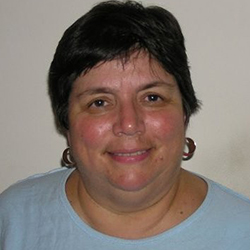Realtors half-jokingly say property value often comes down to three things: location, location, and location. For clinical trial practitioners, you might substitute the words “resiliency, resiliency, and resiliency,” says Barbara van der Schalie, a clinical trial manager with Leidos Biomedical Research, Inc.
“One of the cornerstones for [your professional] success in clinical research is resilience, [because] you aren’t doing the same things today you were five years ago,” van der Schalie told attendees of the ACRP Central Virginia Chapter’s 9th Annual Fall Symposium last week (November 1) in Charlottesville, Va.
She’s not using the term in a loosey-goosey way, either. Instead, van der Schalie points to the definition in the American Journal of Health Education as a blueprint for success: “The process and experience of being disrupted by change, opportunities, stressors, and adversity, and, after introspection, accessing gifts and strengths to grow stronger through disruption.”
She challenged clinical trial practitioners to examine how they function in their professional and personal lives. “When faced with difficult situations, you can be the resilient one on your team and come up with suggestions” and ideas to make improvements, she said.
However, resilience comes more easily to some than to others, van der Schalie readily admitted. There are a number of factors, including family upbringing, DNA, and other personality building blocks at work. Some you can influence, others not so much. The trick, she said, is to focus on aspects of your self-esteem over which you have some control.
For example, you can take steps to literally build your own self-esteem from within, van der Schalie said. “Get in the habit of reviewing what you do well,” she suggested. “Think about what makes you unique. What would your best friends say were your best qualities?” Other ideas: Define your proudest professional accomplishment and think about how you’d like to be remembered at your job after you’ve moved on.
Leadership and Career Growth Track at ACRP 2020
Learn how to become an effective leader and grow your career at ACRP 2020 in Seattle, May 1-4. The all-new Leadership and Career Growth Track features several exciting sessions to jump start your career and give you the tools you need to be an effective leader.
Further, don’t let that pesky internal critic bring you down, either, van der Schalie stressed. We all have a self-critic, she noted, and it’s important not to let that voice run amok in your mind. Left unchecked, the internal critic is “constantly judging and evaluating…pointing out our flaws and limitations,” she said. Confront that voice with a basic, positive affirmation: “I accept and believe in myself.”
Fight any inclination to be a victim, too. Victim mentalities are corrosive and focus on “feelings of helplessness or hopelessness, [and] perceive insurmountable obstacles to accomplishing your goals,” van der Schalie explained. The solution? Try another basic, positive affirmation: “I am capable and confident.”
Another tip: Don’t mistake worrying for positive action. “The worrier expects the worst and exaggerates the potential negative consequences of any event,” van der Schalie said. Instead, tell yourself, “I am prepared for” whatever is worrying you, she advised.
Setting goals and stating them publicly also fuel resiliency between you and your colleagues, she said. “It can help build mutual faith” between you and other team members, she noted.
Another tip: Share your knowledge freely with others. “Influencers are people with information who are willing to share it,” van der Schalie said.
Where you work is also a big factor, she added. If you are struggling with your own resilience, consider your immediate surroundings. Organizations that engender resilience in team members generally exhibit clear purpose and values, prepare employees for change, build flexibility and innovation, and plan ahead, van der Schalie said.
It’s also easy to spot resilient leaders, according to van der Schalie. They stay positive, focused, and flexible, and are organized and action oriented.
Two final tips from van der Schalie: Always keep your sense of humor, and never underestimate the value of taking the occasional “mental health day” to relax on the couch with a good movie.
Author: Michael Causey




